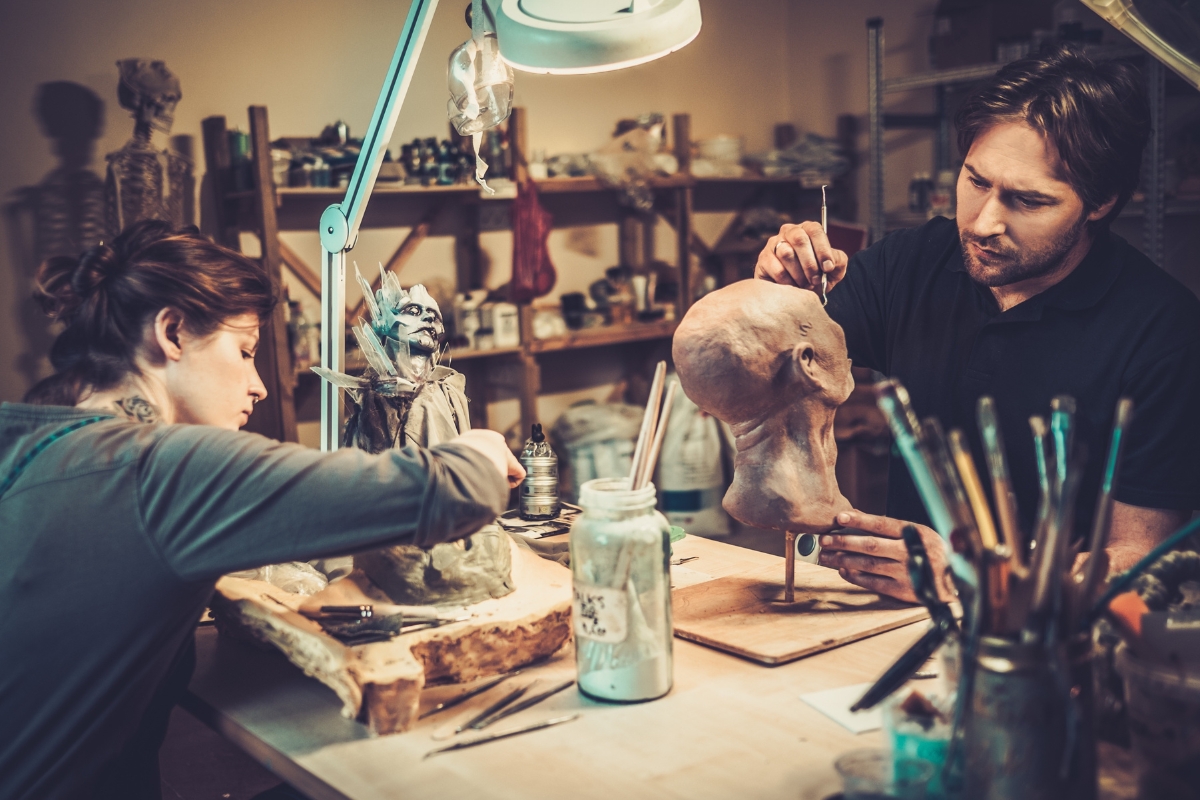If you have a passion for fashion, art and storytelling, then the world of costume design might be your stage. From historical dramas to futuristic sci-fi, costume designers play a role in bringing characters to life and immersing audiences in captivating narratives.
Through valuable insights and a list of essential skills, this article will provide step-by-step guidance on becoming a costume designer.

What is a Costume Designer
A costume designer is responsible for creating outfits that encapsulate the emotions and dynamics of a character in theatre, film, television or other performance mediums, all while aiding the narrative flow. All designs are thoroughly researched to reflect the story’s era, cultural context and storyline.
Costume Designer’s Role
Communication
A costume designer will often collaborate closely with the director and production team to align their sketched or model designs with the director’s vision and ensure fabric colours, tones, and textures complement the production’s lighting and backdrops.
Costume designers will also work closely with the actor to ensure costumes are tailored to the actor’s distinct body shape and make sure they can fully embody and connect with their character.
Storytelling
As costumes are one of the first things the audience sees, costume designers will work closely with the script to ensure costumes are aligned with the scene and the character’s back story, personality, social status and relationship with other characters.
Depending on the narrative, the costume designer will go through a collection of colour palettes and decide on a soft, harsh or strong silhouette. These elements can help communicate to the audience a character’s personality and the emotional tone of a scene.
Costume History
Costume designers will develop a deep knowledge of the story’s history to ensure that actors are dressed accurately for their character’s time, enhancing the narrative’s credibility and enriching the performance.
Such knowledge can be absorbed from experience, books, museums or the internet.
Styling and Making Costumes
Stage and film costumes, in particular, will endure significant wear and tear, especially during rigorous performances or on-location shoots. A specialist costume maker will be skilled at selecting durable fabrics, employing reinforced stitching and adding lining for more resilience.
For quick costume changes, designers may incorporate features such as hidden zippers, Velcro and snaps, allowing for costumes to be removed or layered swiftly without affecting the actor’s performance or the costume’s aesthetic appeal.
Skills Required
Being a costume designer demands a unique blend of artistic, technical and interpersonal skills. Therefore, you should have strong:
- Creative imagination
- Vision for colour and design
- Research abilities
- Passion for fashion history, cultural traditions and eras
- Knowledge of different fabrics, draping, sewing and pattern-making
- Communication and collaboration skills
- Organisational skills
- Problem-solving skills
- Adaptability to handle tight deadlines and budget constraints.
With the rise of modern technology, it’s also worth familiarising yourself with computer-aided design (CAD). It will give you the tools to sketch, draft and float the costume pattern digitally. This enables you to showcase design specifics, such as seams and stitching, and demonstrate how the costume is intended to fit on the body.
Pathway to Costume Design
How to become a costume designer usually starts with a strong foundation in the arts, pursuing a degree in costume design, fashion design, theatre arts or a related field. However, if you’re not inclined toward formal studies, internships or assistant roles with established designers or theatre companies can offer invaluable hands-on experience and networking opportunities.
In your spare time, self-educate in areas like history, art and global fashion trends that can infuse authenticity into your designs. It can help you to build a diverse portfolio showcasing different styles and eras, allowing you to work on varied projects.
It’s also beneficial to network and cultivate relationships with directors and producers by joining theatre groups and going to film festivals.





